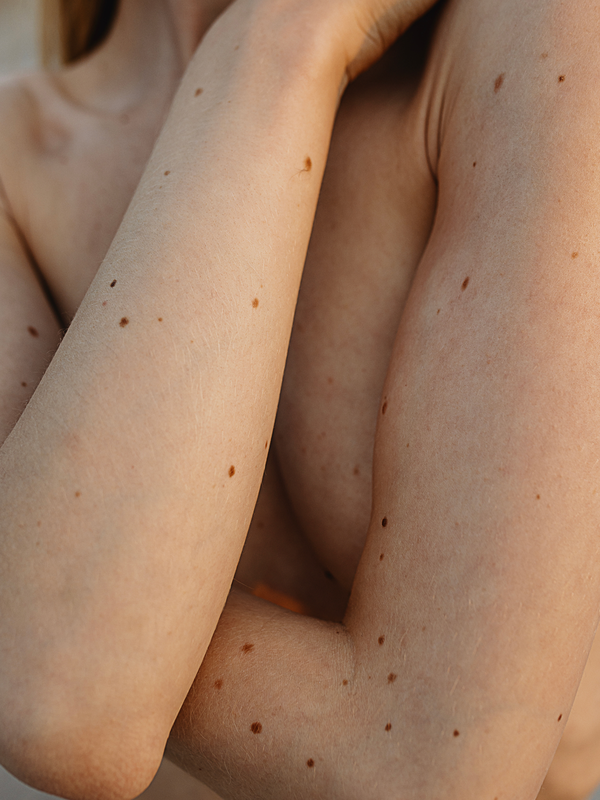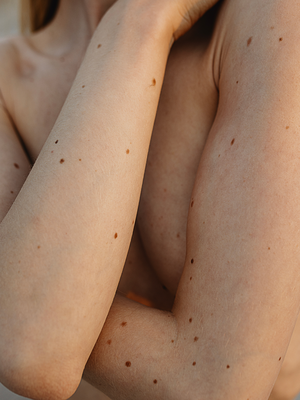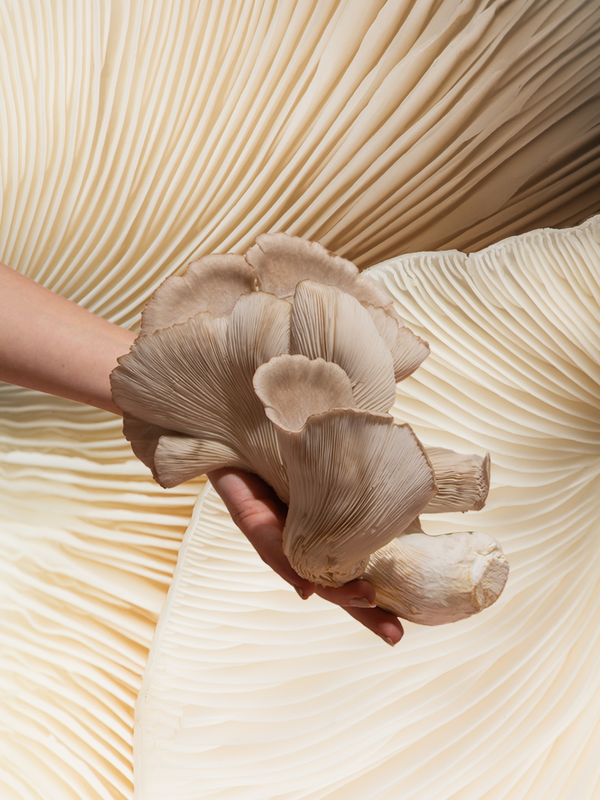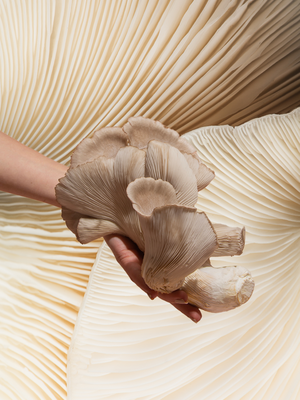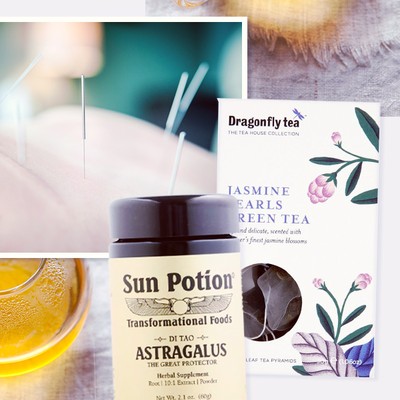
11 Things To Know About Chinese Medicine
It Takes A Holistic Approach
“Chinese medicine is an integrated approach to health. It’s a natural healing system, used by millions of people for thousands of years. The key to it is an incredibly sophisticated understanding of how the body works: physically, emotionally and spiritually. We work between all of these levels simultaneously and understand how they interact and affect each other – and that knowledge is what makes the difference.”
It’s All About The Seasons
“Seasonal living is one of the most important teachings of Chinese medicine. Taoism explains these differences like this: each season’s start and finish depends on the slow but ever-changing movement of qi (energy) in nature and the planet, and this gives each season its own vibration. As we are inherently connected to the environment, our bodies are attuned to that vibration. The more we mirror nature, says Taoism, the healthier we will be. So, year round, immerse yourself in nature by looking at what’s going on around you. Chances are you already adapt naturally – perhaps you love to eat outside on summer evenings or have a favourite warming stew you cook in winter. The amount we sleep, the food we eat and the life choices we make can all be gently adjusted to bring us into line with the natural cycle.”
A Mindful Diet Is Encouraged
“As a general rule, I recommend focusing on organic, local, seasonal, responsibly sourced and unprocessed food wherever possible. And remember it’s far more important to focus on how rather than what you eat. Chinese medicine believes the stomach meridian starts in the eyes, so looking before you eat will encourage saliva production and kick-start your digestive system. Chinese medicine also encourages adequate chewing of food (to avoid indigestion and constipation), and recommends taking time over your meal, one reason why eating with chopsticks is so good. Even when you’re only having a sandwich, eat slowly. Finally, try to stop eating when you are 70% full. If this feels strange at first, try stopping at 80% to start with – you’ll soon notice how much more comfortable your digestion feels.”
Eating Fresh Is Just As Important
“When it comes to specific foods, Chinese medicine advises us to eat raw food only in summer and not in winter. At the same time, eat as fresh as you can – no vinegar, nothing preserved, no salt and no leftovers. For example, I always use fresh leaf tea, not tea bags, and make my own bread – try my oat cake recipe.”
Sleep Struggles Are Linked To Energy
“Asking about your quality of sleep is one of the first questions we ask during a Chinese medicine diagnosis, primarily because it can reveal imbalances in the body. If you can’t sleep, the first assumption would be that you have a yin/yang imbalance. Think of yang energy as a flame that keeps you energised during the day. At night, yin energy should take over. It is restorative and replenishes you physically and mentally. There’s a protective energy in the body called wei qi, which flows on the exterior of your body during the day, when it’s classified as yang. At night, this energy moves to the interior, and so becomes yin. However, a sedentary lifestyle or stress will stop your wei qi flowing freely, disrupting the pendulum swinging from yang to yin. That will make you miss out on deep, regenerative sleep.”
…And Your Organs, Too
“Chinese medicine also believes insomnia can signpost an organ imbalance. Don’t forget, Chinese wisdom views our organs in a more expansive way than Western biology, so this doesn’t mean a medical issue. For example, if you need the loo frequently at night, Chinese medicine would say this points to a kidney imbalance, but this isn’t the same as diagnosing a kidney infection. The time of night you struggle to either get to sleep or wake up will point to which organ has the imbalance. Issues between 9 and 11pm are connected to the functioning of the heart, 11pm to 1am is the gallbladder, 1 to 3am is the liver, 3 to 5am is the lung, 5 to 7am is the large intestine. If you struggle with your sleep, try to lie down for a short rest after lunch to nourish your yin. From 6pm, limit high-intensity exercise, and try bathing your feet in warm water and magnesium salts for up to 20 minutes – if you break a sweat, that’s good, as it shows you’re unblocking the meridians.”
Gentle Exercise Is Recommended
“If you’re in a state of exhaustion, a cardiovascular heart-pumping exercise will only further deplete you. Chinese medicine has long recommended gentle exercise with coordinated breathing, which it believes will assist detoxification and relax body and mind, which can in turn aid weight loss (excess stress is a big factor in weight gain). In fact, gentle exercise like Qigong, which is similar to tai chi, can result in more weight loss than cardiovascular exercise. A martial art that’s been practised for thousands of years in various forms, it’s made up of sequences of flowing movements where the body, mind and breath are coordinated and relaxed.”
It’s All About Reducing Stress Levels
“Stress creates heat in the body. Chinese medicine recognises the body has in-built systems to help us de-stress and will attempt to restore balance either through excretion via orifices and skin or by depositing the toxicity in joints and tissues. This is how stress ages the skin and creates tension in the body resulting in symptoms such as a stiff neck, aching shoulders and backache. It leaves us feeling tired, appearing aged and with the early symptoms of stress such as disrupted sleep and digestive issues. These are the warning signs that the body is overloaded. Qigong is my number one recommendation for boosting mental health and for dealing with stress. Because it involves mindful breathing, it re-sets the rest phase of our nervous system.”
The Right Supplements Can Help
“I take astragalus root and elderberries for immunity and drink lots of jasmine tea. However, I never put ice in my drinks. In Chinese medicine this is like pouring ice on the furnace of your stomach – it slows down the process and your body has to work a lot harder to compensate as a result.”
It Believes In The Power Of Crystals
“Chinese medicine has a rich tradition of using crystals as medicine. The philosophy is that gemstones can support our jing Qi (life essence), blood (circulation) and fluids (lymphatic drainage). I’d always recommend starting with jade, which has remarkable cooling properties and is great for reducing inflammation and puffiness – in fact, a gua sha facial with a jade stone is part of my daily ritual. Just make sure you’re actually using jade – if it’s cheap, it’s likely to be a composite or just coloured glass. Our Beauty Restorer is made from 100% Xiuyan jade.”
You’ll Learn To Breathe Better
“In Chinese medicine, good breathing is one of the major ways to create good quality qi. It has a poetic way of describing how deep breathing can bring you back out of your emotions into your rational, thinking mind: the heart is called the ‘Emperor’, while the lungs are called the ‘Prime Minister’. So, taking deep breaths is asking your Emperor to listen to his Prime Minister and to listen to your rational mind. Studies have shown controlled, slow breathing stimulates the vagus nerve, which connects your head and stomach. This, in turn, prompts your parasympathetic nervous system – the rest and relax system – to kick in. The explanation in Chinese medicine is that slow, considered breathing takes you from an active, yang phase into a relaxed, passive, yin phase. This makes it the simplest form of meditation.”
Yang Sheng: The Art of Chinese Self-Healing by Katie Brindle is available now; for more information on Katie and The Hayo’u Method, visit Hayoumethod.com or follow Katie on Instagram @katie_brindle
*Features published by SheerLuxe are not intended to treat, diagnose, cure or prevent any disease. Always seek the advice of your GP or another qualified healthcare provider for any questions you have regarding a medical condition, and before undertaking any diet, exercise or other health-related programmes.
DISCLAIMER: We endeavour to always credit the correct original source of every image we use. If you think a credit may be incorrect, please contact us at info@sheerluxe.com.
